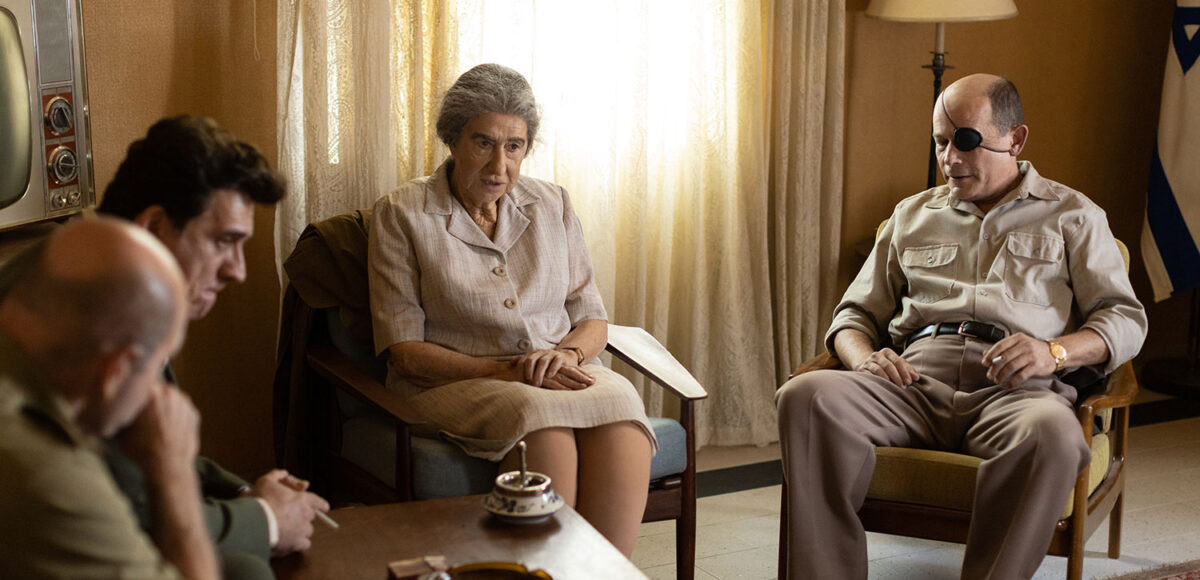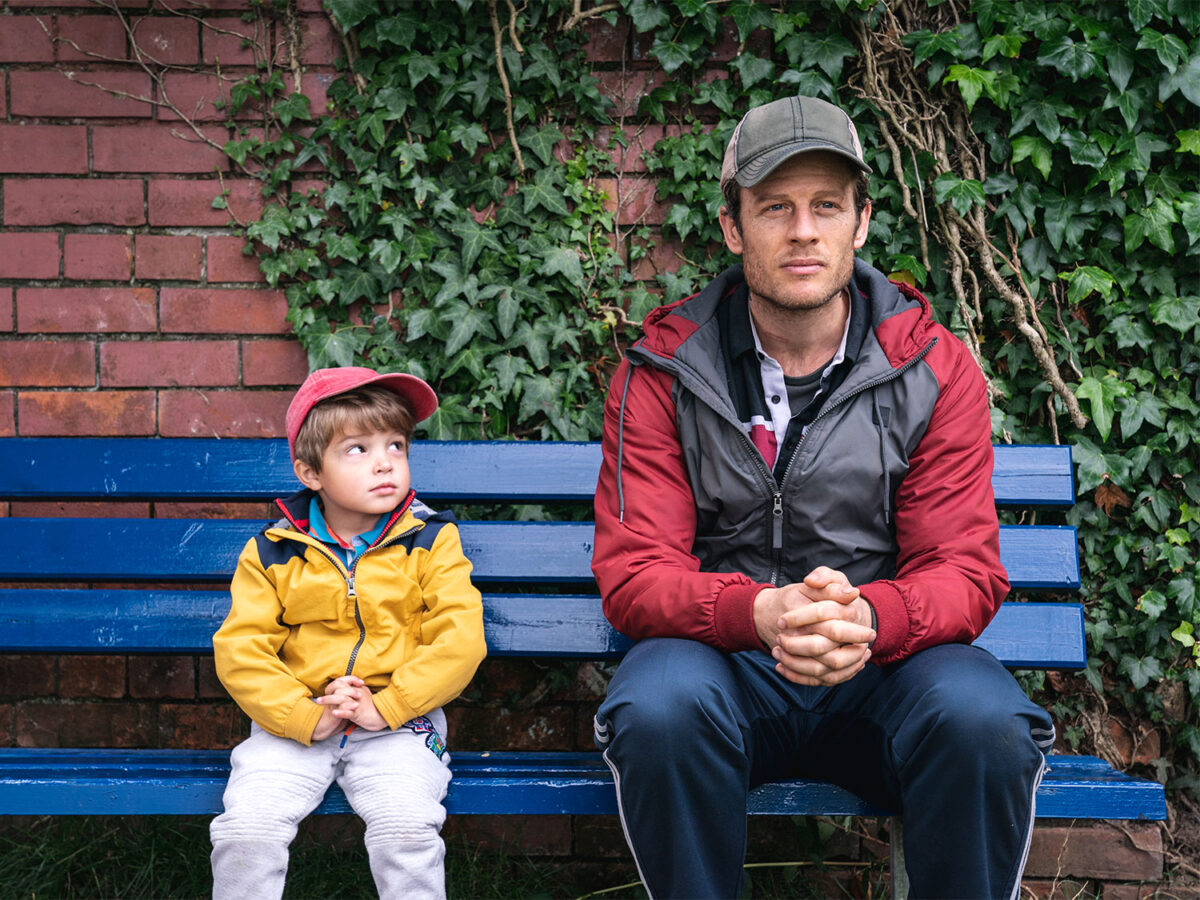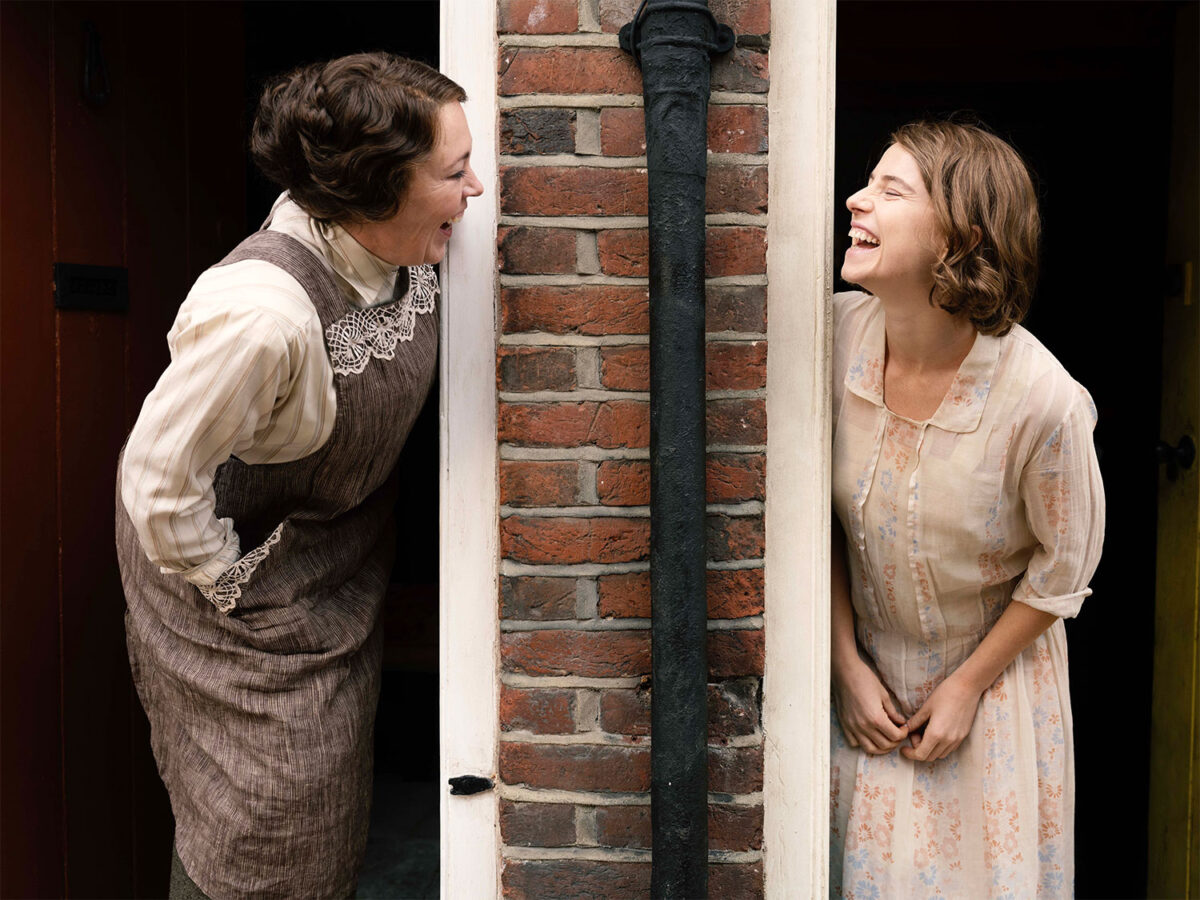An opening montage of archival news clips travels quickly over highlights of Israeli history. We witness its birth in 1948, punctuated by the many Egyptian invasions and ceasefires leading up to the lightning speed vanquishing of Israel’s Arab enemies from Egypt, Syria and Jordan in the Six-Day War of 1967. Israel’s stunning David versus Goliath victory was credited to legendary military leader Moshe Dayan. But there was to be another war, sooner than Israeli leadership anticipated, and it is that war and Golda Meir’s role as Prime Minister that is the subject of the biopic “Golda” directed by Guy Nattiv and starring Helen Mirren.
In 1974, Golda was called to testify in front of the Agranat Commission to justify her actions during the Yom Kippur War of 1973, a war that caught the Israeli government completely unprepared. Using this inquisition as a framework for the film, the viewer is taken into committee meetings where the possibility of an Arab invasion is discussed. The spy agency has had many indications that the Egyptians and Syrians were amassing weapons at the borders but the cabinet is skeptical. Dayan is in favor of only the most minimal protective measures. The disagreements are heated with General David “Dado” Elazar who favors full mobilization.
With a bird’s eye view of the inner workings and disagreements in such a high-powered cabinet led by a woman whose role in the birth of Israel was legendary, one would expect a feeling of urgency and foreboding. And therein lies one of the many problems with this film. It is the eve of Yom Kippur, the highest and most somber of holidays, and there is every evidence that an attack is imminent. Instead, you would think the cabinet was discussing the price of wheat in Russia.
Trailed constantly by her personal assistant Lou Kaddar, Golda is never without a cigarette. Chastened by her doctor for the personal habits endangering her life—cigarettes, coffee and lack of exercise—she is passive and unmoved. When faced with rivals and supporters alike in the cabinet, she is passive and unmoved.
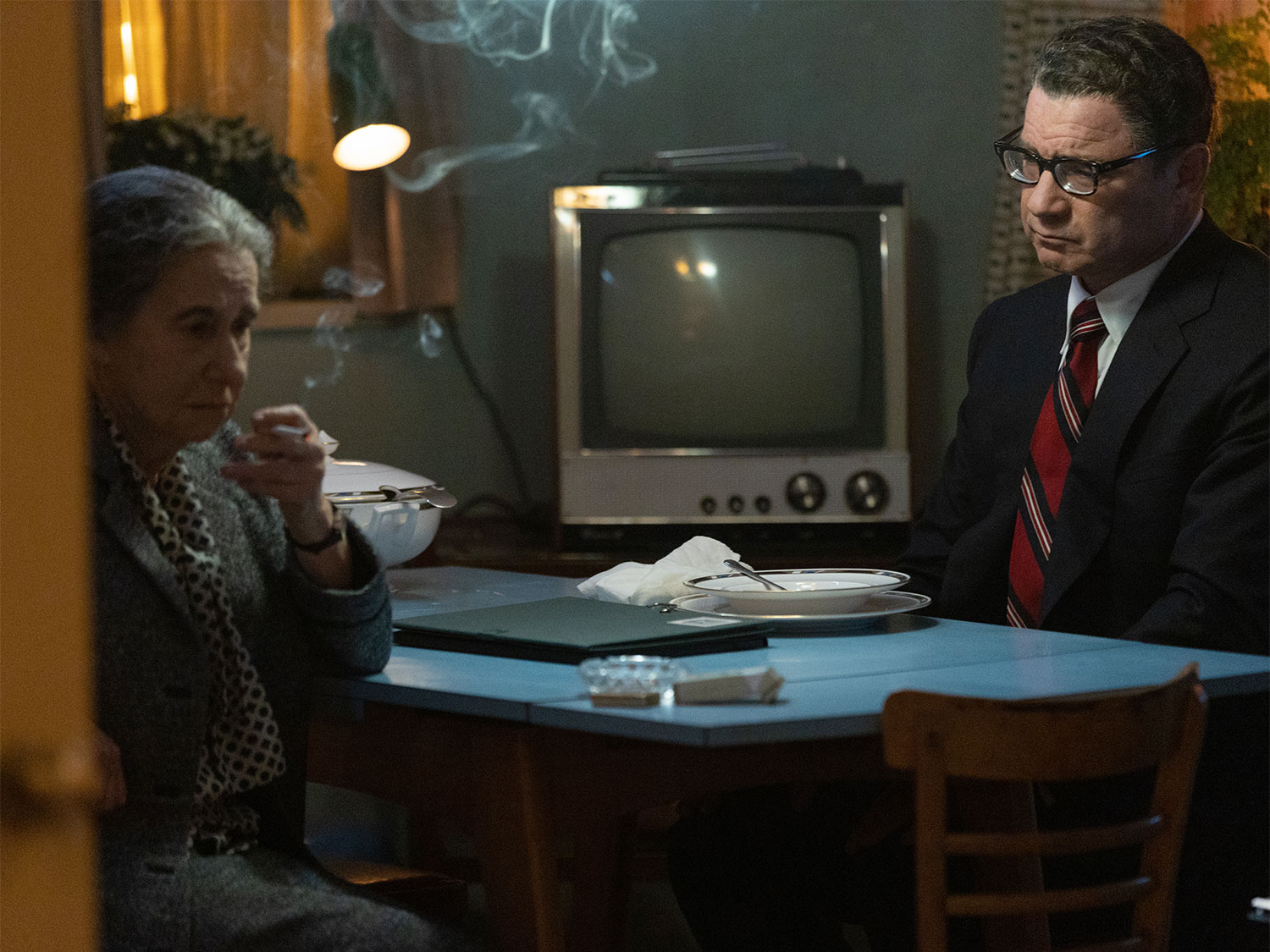
At this critical juncture in the life of Israel, when unthinkable defeat is possible because they were caught off guard, we are treated to never-ending shots of Golda walking slowly down narrow corridors. In lieu of dialogue expressing her anxiety, we are given close-ups of Golda wringing her hands.
Golda Meir, a leader in the free world, one of the architects of her country, was renowned for her steely attitude and straightforward approach through crises. Nowhere is any of this steeliness in evidence. This was the woman who ordered the Mossad to hunt down and assassinate the leaders of Black September, the terrorist group that massacred members of the Israeli Olympic squad in Munich. Diplomatic when necessary, she made clear her displeasure with leaders who crossed her, like the Austrian Chancellor who closed a Jewish Agency transit center under pressure from Palestinian terrorists. A passing reference is made about her anger with Austria but it is given no context.
But it is not just Golda who is given short shrift. Moshe Dayan, the military genius who led Israel to defeat their Arab enemies in the Six-Day War, the spoils of which were the Sinai Desert and the Golan Heights, shows none of the characteristics that made him so influential. Dayan, the Minister of Defense under Golda, is silent and almost jocular in his dismissal of the threat of war on Yom Kippur. He is the polar opposite of “Dado” Elazar, the General who vocally advocates for a full deployment of the army against what he is sure is the buildup to war.
General Elazar, as a character, comes off considerably better. A forceful advocate for his position, he is proven right. His relationship with Golda is respectful of her position and her advice. The interaction between the two of them almost borders on a viable and convincing portrayal.
Clearly, the film is a disappointment. The script is chock full of clichés and rife with cheap sentimentality. Illustrative is this line at the beginning of the war as the Egyptians continued to advance into Israeli territory: “The enemy has tasted blood. We are fighting for our lives.” This is a statement that comes under the category of the bleeding obvious. But it may be unfair to blame so much of it on the scribe, Nicholas Martin, a successful television writer with one feature to his credit. That film was “Florence Foster Jenkins,” and, like this film, was full of flat dialogue and wasted its primary assets, Meryl Streep and Hugh Grant.
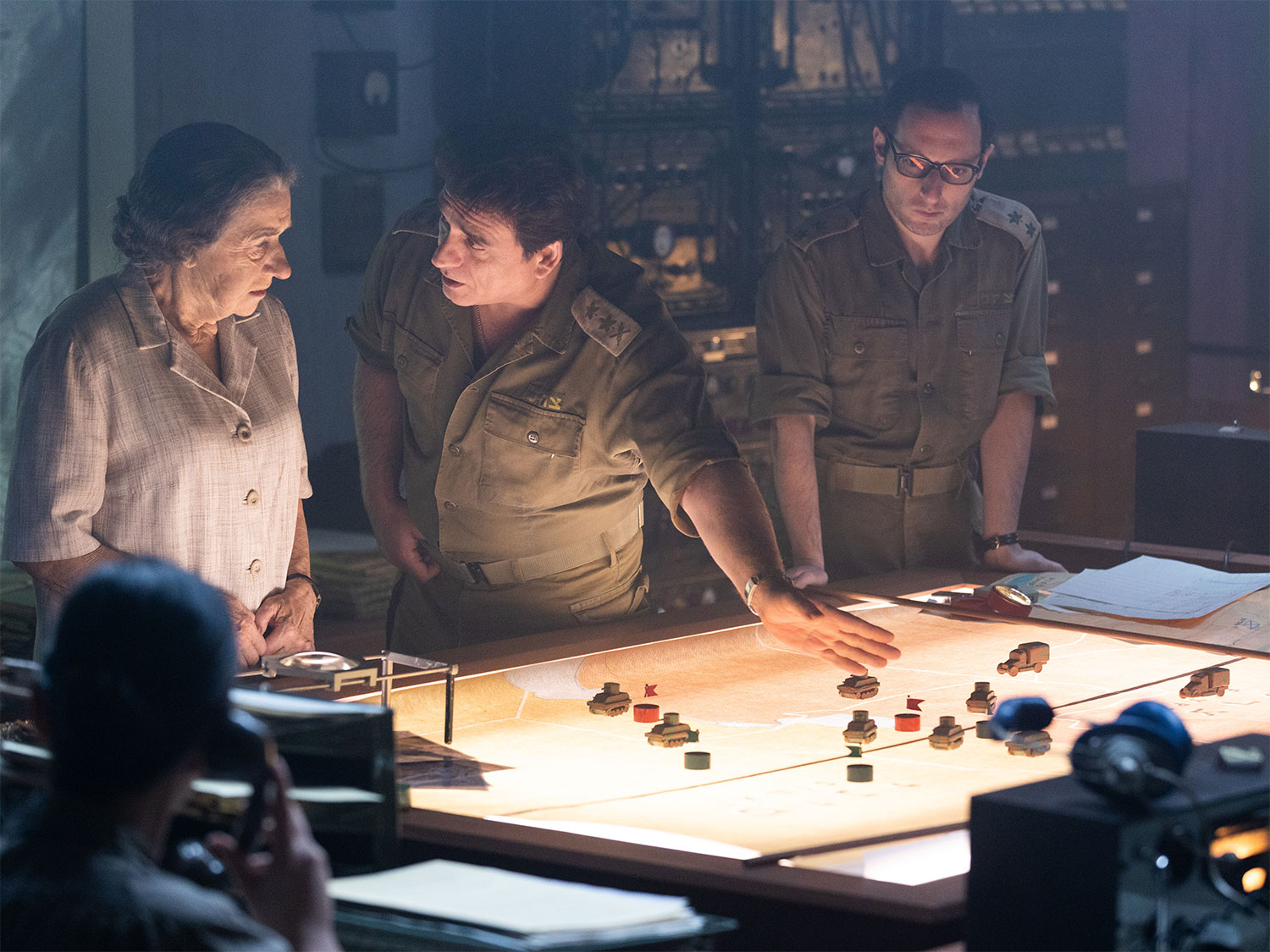
Director Guy Nattiv failed to capitalize on all the advantages he was given. Performance and script were hampered by the slow pace he used throughout. As already mentioned, there was no sense of urgency, even when it looked like the war might be lost. He had his Golda endlessly walking the same hallways. Purposeful or not, there is little drama in a meander down a corridor. Nattiv was endlessly looking for the shot and forgot to find the emotion. Yes, Golda smoked a lot, but it’s not a point-of-view shot. Smoke might be a metaphor for what was going on but he needed to frame it better. He would try trick shots like the one of an upside-down desk, a package of “Missile” cigarettes (seriously?) or the top of Golda’s head. Because of the languorous pacing, performance was missing. It’s tough to express anxiety verbally when you can drive a truck through the interactions.
The score by Dascha Dauenhauer is completely unmemorable and fails to underpin the action. Perhaps because this was filmed entirely on sound stages (unless I’m very much mistaken) there is little of note in the cinematography and production design.
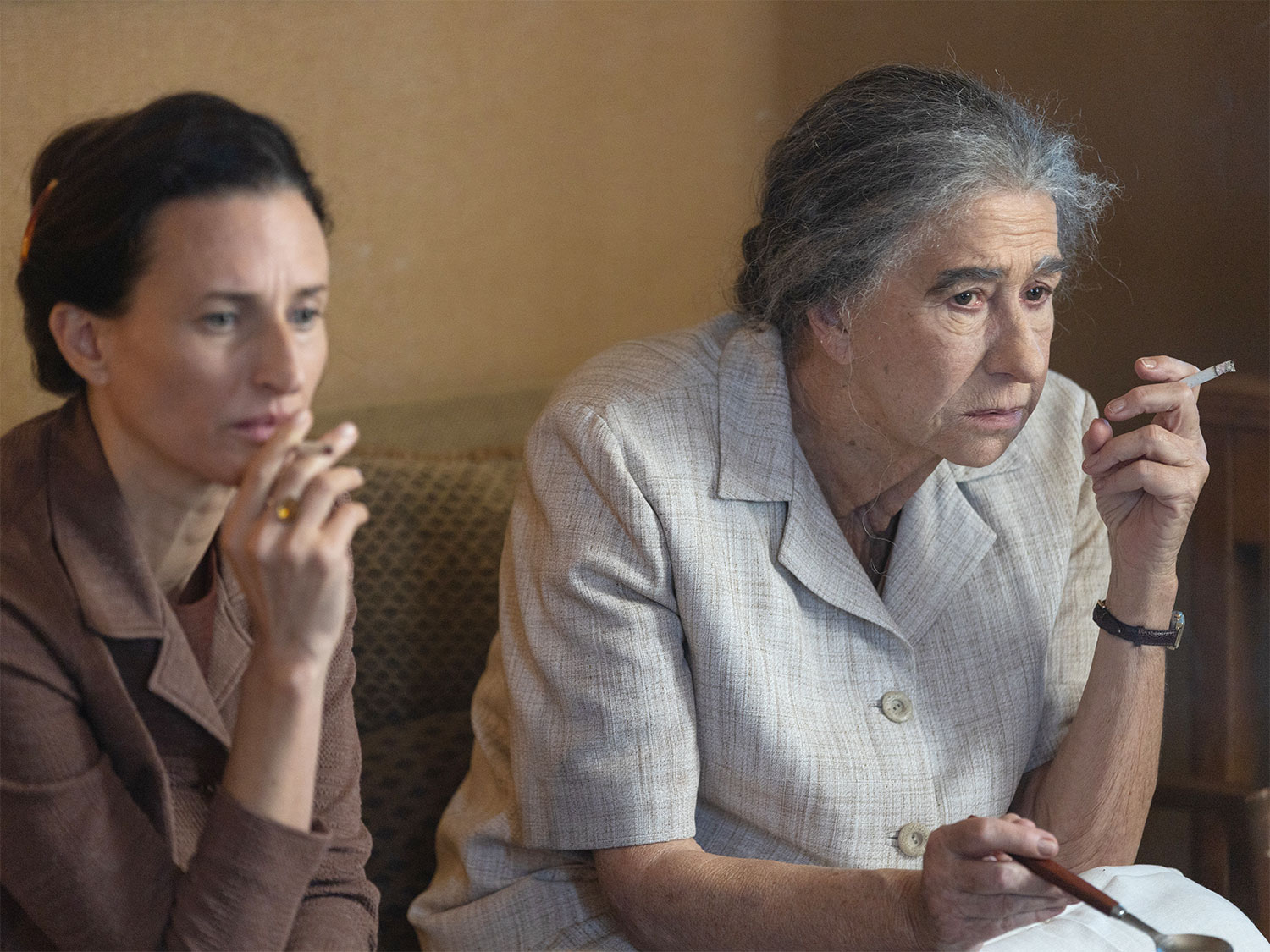
It is the makeup that is most notable for the multiple prostheses worn by Helen Mirren in an attempt to resemble Golda Meir at that stage of her life. One would think that it might be the facial aspects that would be the most distracting but they’re not. It’s the exaggerated leg add-ons that overwhelm the look Nattiv was trying to achieve.
But let’s take a moment to discuss the elephant in the room—the casting of Helen Mirren as Golda Meir. She was not the first non-Jew to portray Golda. Such luminaries as Anne Bancroft, Judy Davis, Ingrid Bergman and Colleen Dewhurst have all portrayed her on stage and screen. It’s not a question of who but of how well. We will never know whether Helen Mirren could have been a viable Meir because this film fails to deliver on so many levels. It is possible she is chosen as a bankable star because most of the cast were Israeli or British actors with whom most of the audience will be unacquainted. The exceptions to this were Camille Cotton (“Call My Agent”) as Golda’s assistant who trails after her with cigarettes, Henry Goodman (“Woman in Gold”), the chairman of the Agranat Committee, and Liev Schreiber (“Ray Donovan”), a laconic Henry Kissinger. But they, like everyone else, were not given viable characters to perform.
Now playing at the AMC Century City.
Neely Swanson spent most of her professional career in the television industry, almost all of it working for David E. Kelley. In her last full-time position as Executive Vice President of Development, she reviewed writer submissions and targeted content for adaptation. As she has often said, she did book reports for a living. For several years she was a freelance writer for “Written By,” the magazine of the WGA West, and was adjunct faculty at USC in the writing division of the School of Cinematic Arts. Neely has been writing film and television reviews for the “Easy Reader” for more than 10 years. Her past reviews can be read on Rotten Tomatoes where she is a tomato-approved critic.



